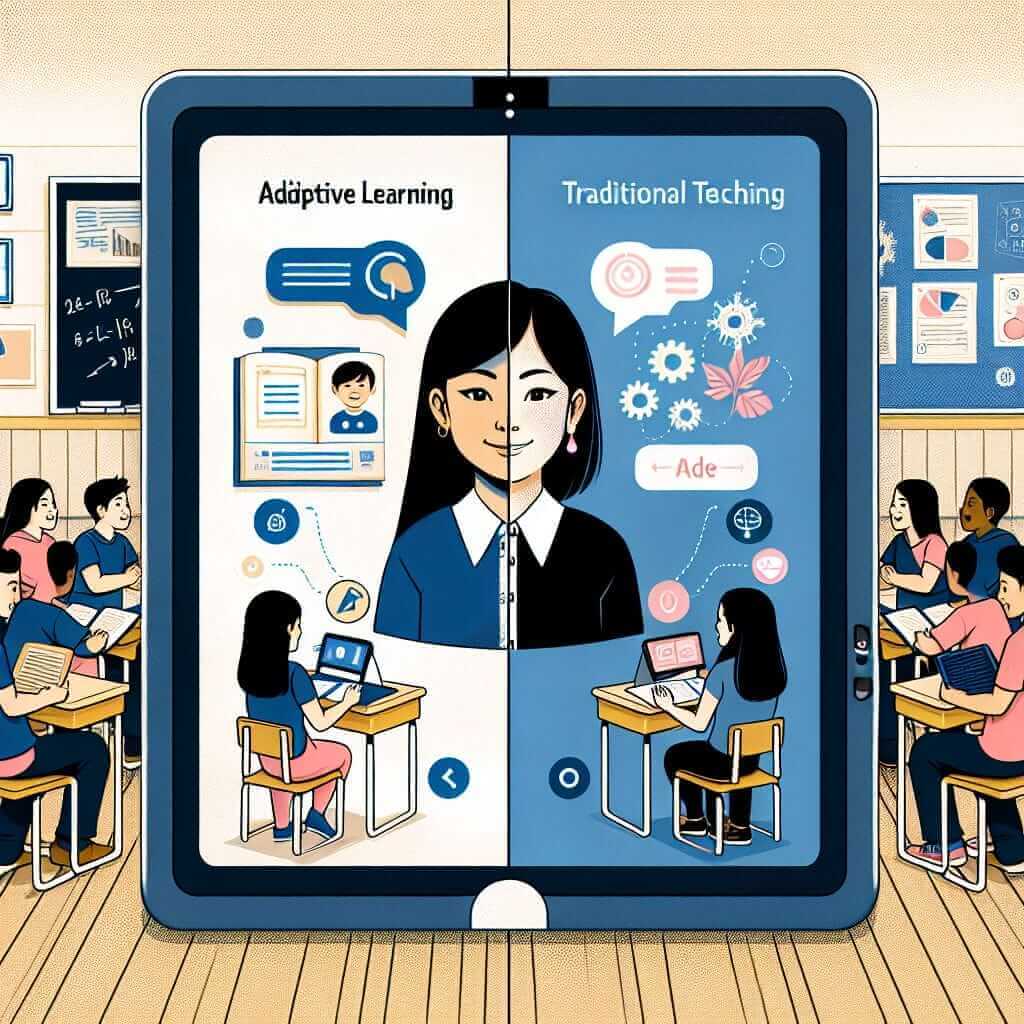Adaptive learning technologies are becoming increasingly prevalent in education. This topic has appeared intermittently in the IELTS Writing Task 2, often prompting discussions about their merits and drawbacks. This essay will delve into a specific question related to the effectiveness of these technologies and provide a model answer to help you prepare for your IELTS exam.
Sample IELTS Writing Task 2 Question
Some people argue that adaptive learning technologies, which personalize education based on students’ needs, are the key to effective learning. Others, however, believe that traditional teaching methods are still superior. Discuss both views and give your own opinion.
Analysis of the Question
This question presents a classic “discuss both views and give your opinion” format. It requires you to:
- Present both sides: Discuss the arguments for adaptive learning technologies and traditional teaching methods.
- Give your opinion: Clearly state your stance on whether adaptive learning technologies are more effective or if traditional methods remain superior.
- Provide evidence: Support your claims with relevant examples and reasoning.
Model Answer
The increasing integration of technology into education has sparked debate about the most effective teaching methods. While some champion adaptive learning technologies for their personalized approach, others maintain that traditional methods are still superior. This essay will explore both perspectives before presenting my own view.
Advocates of adaptive learning technologies emphasize their ability to cater to individual learning styles and paces. These platforms use algorithms to assess students’ strengths and weaknesses, tailoring content and activities accordingly. This personalized approach, proponents argue, allows students to learn at their own pace, fostering deeper understanding and preventing feelings of discouragement that can arise in traditional classrooms where everyone follows the same curriculum. For instance, platforms like Khan Academy and Duolingo offer personalized learning paths based on individual progress, providing targeted support and challenges.
Conversely, proponents of traditional teaching methods argue that the human element remains irreplaceable. They highlight the importance of teacher-student interaction, real-time feedback, and classroom discussions in fostering critical thinking and collaboration skills. The structured environment of a traditional classroom, they argue, instills discipline and encourages active participation, aspects that might be lacking in self-paced online environments. Furthermore, critics point out the potential for technical glitches and the risk of students becoming overly reliant on technology, hindering their ability to learn independently.

While both sides present valid points, I believe that adaptive learning technologies, when used judiciously and in conjunction with traditional methods, hold the key to unlocking students’ full potential. The personalized learning experience offered by these platforms can significantly enhance engagement and knowledge retention. However, it’s crucial to maintain a balance by integrating these technologies with the irreplaceable aspects of traditional teaching, such as teacher guidance and peer interaction. This blended approach can create a dynamic and supportive learning environment that caters to individual needs while fostering essential social and collaborative skills.
(Word count: 322 words)
Writing Tips
- Vocabulary: Use a range of vocabulary related to education, technology, and learning styles. Avoid repetition by using synonyms.
- Grammar: Pay attention to subject-verb agreement, article usage, and complex sentence structures.
- Cohesion and Coherence: Ensure your essay flows smoothly with clear topic sentences and appropriate linking words.
- Examples: Support your arguments with relevant and specific examples.
Useful Vocabulary
- Adaptive learning technologies: Systems that adjust to learners’ needs.
- Personalized learning: Tailoring education to individual needs.
- Algorithms: Sets of rules used by computers to solve problems.
- Traditional teaching methods: Teacher-centered approaches like lectures and textbooks.
- Curriculum: The planned course of study.
- Critical thinking: Analyzing information objectively.
- Collaboration: Working together to achieve a common goal.
- Blended learning: Combining online and face-to-face instruction.
Conclusion
The debate surrounding adaptive learning technologies and traditional teaching methods is complex. While each approach has its merits and drawbacks, a balanced approach that leverages the strengths of both is likely to be most effective. As technology continues to evolve, its role in education will undoubtedly continue to be a topic of discussion.
Remember to practice writing essays on similar topics and continue to expand your vocabulary to excel in your IELTS Writing Task 2.